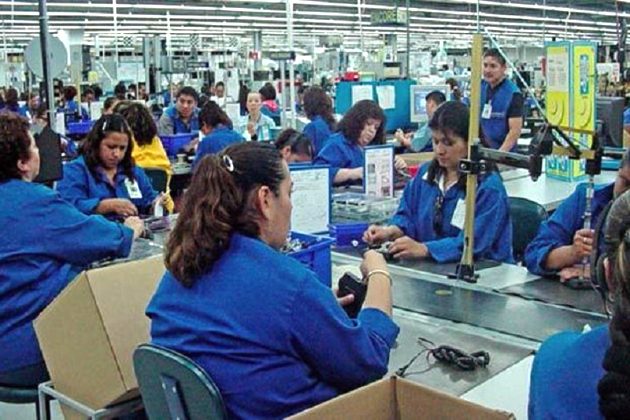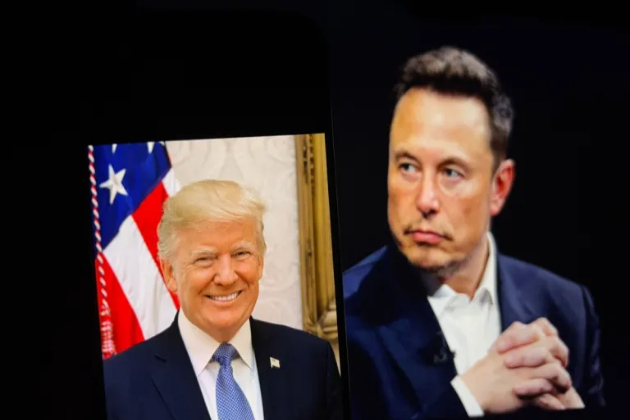Hollywood rocked by Trump's film tariffs
Xinhua
07 May 2025, 13:45 GMT+10

by Julia Pierrepont III
LOS ANGELES, May 7 (Xinhua) -- U.S. President Donald Trump announced on Sunday that he plans to impose a 100 percent tariff on films produced overseas, which sent shockwaves through Hollywood and the global entertainment industry.
The immediate reaction on Wall Street was also negative, with shares of Netflix and Warner Bros. Discovery Inc. as well as other entertainment firms falling.
Executives from major studios and streaming platforms said that the policy could cripple a vital and thriving sector of the U.S. economy.
Industry officials and observers did not respond well to the initial plan, reported NBC News on Monday.
In a note to clients, analysts with Morgan Stanley called the idea "ill-defined," noting 100 percent duties on some or all of the cost of a Hollywood production "would lead to fewer films, more expensive films, and lower earnings for all in the business."
White House spokesman Kush Desai said in a statement on Monday that "no final decisions on foreign film tariffs have been made," but "the Administration is exploring all options to deliver on President Trump's directive to safeguard our country's national and economic security while Making Hollywood Great Again."
"At this stage, there are more questions than answers about Trump's movie tariffs threat," Variety, a major Hollywood industry news outlet, said in a report.
"Many movies are shot and produced in multiple countries, including in Britain, France, Germany, Hungary and Canada. It isn't known how the Trump administration would define what constitutes a foreign-produced film. It also is not clear whether Trump would seek to extend levies to TV productions," the report added.
Industry veterans were quick to note that films are classified as services under international trade law, not goods, making them typically exempt from tariffs. This classification raises serious questions about how such a policy would be enforced or justified under current legal frameworks.
Entertainment attorney Jere Hausfater challenged the administration to define a foreign film. For example, if the intellectual property is based on a book written by a French woman, published in the United States with the script written by a British writer, and the film director was an American, the cast a blend of British and U.S. talent, with principal photography in Ireland and Atlanta, post in Los Angeles with distribution throughout the world, then is that film foreign or U.S.?
He also wondered if the tariff would be calculated based on the final negative cost of the picture. Plus, who would pay the tariff? Since it is impossible to pass the impending tariff along to the consumer, should the distributor in the United States be saddled with it instead?
To avoid such Byzantine calculations, American indie Producer Jeff Most suggested that providing a federal tax incentive in the United States would be a far simpler and more effective means of deterring runaway productions than unpredictable tariffs.
"It's increasingly harder to raise the funds needed to produce films. There are fewer revenue streams with the disappearance of the DVD market, the reduction in license fees for premium cable and satellite channels, and more selective streaming platform licensing with lower fees than just a few years ago," he told Xinhua.
"The best way to make America more attractive for filmmaking and stem the flow of runaway production is to offer a federal tax incentive on top of the various state incentives that are offered around the United States," he added.
Most said that film is the one industry in which the United States remains dominant, with two-thirds of the revenue earned by American films coming from overseas.
Some news outlets pointed out that the risk of Trump's film tariff is that it could lead to retaliation from other countries. U.S. films, which generated a positive balance of trade in every major market in the world, made 22.6 billion U.S. dollars in exports, with a surplus of 15.3 billion dollars in 2023, according to the data from the Motion Picture Association.
 Share
Share
 Tweet
Tweet
 Share
Share
 Flip
Flip
 Email
Email
Watch latest videos
Subscribe and Follow
Get a daily dose of Los Angeles Herald news through our daily email, its complimentary and keeps you fully up to date with world and business news as well.
News RELEASES
Publish news of your business, community or sports group, personnel appointments, major event and more by submitting a news release to Los Angeles Herald.
More InformationInternational
SectionU.S. moves to boost air traffic controller workforce
WASHINGTON, D.C.: The U.S. Transportation Department says it is working to fix a significant shortage of air traffic controllers by...
Pentagon backs army's right to repair its own weapons
WASHINGTON, D.C.: The U.S. Department of Defense wants to change its contracts so the Army can fix its own weapons instead of always...
Mexico plans to cut work week to 40 hours by 2030
MEXICO CITY, Mexico: Mexico is laying the groundwork to reduce its standard work week from 48 to 40 hours by 2030, Labor and Social...
HHS Secretary RFK Jr. plans overhaul of vaccine testing, report says
WASHINGTON, D.C.: U.S. Health and Human Services Secretary Robert F. Kennedy Jr. wants to change how vaccines are tested, according...
US House votes to block California’s zero-emission truck plan
WASHINGTON, D.C.: In a challenge to California's push for cleaner transportation, the U.S. House of Representatives voted this week...
Two measles cases confirmed in Cook County
CHICAGO, Illinois: The Chicago and Cook County health departments say that two people in Cook County have measles. These are the...
California
SectionUS House votes to block California’s zero-emission truck plan
WASHINGTON, D.C.: In a challenge to California's push for cleaner transportation, the U.S. House of Representatives voted this week...
Trump says fraud cases referred to DOJ from Musk-led DOGE
WASHINGTON, D.C.: U.S. President Donald Trump said this week that some fraud cases had been reported to the Justice Department based...
Automakers urge Congress to block California gas car ban
WASHINGTON, D.C.: Major automobile companies want Congress to stop California's plan to ban the sale of gas-only cars by 2035—a rule...
Hollywood rocked by Trump's film tariffs
The Screen Actors Guild statue is seen in front of the Hollywood sign in Los Angeles, the United States, Jan. 20, 2015. The SAG awards...
George Clooney, Adam Sandler's 'Jay Kelly' gets awards season release
Washington [US], May 7 (ANI): Netflix has announced a theatrical release strategy for its upcoming film 'Jay Kelly,' starring George...
Sandra Bullock, Nicole Kidman reunite for 'Practical Magic 2'
Washington [US], May 7 (ANI): Warner Bros. has announced that the sequel to the beloved 1998 film 'Practical Magic', starring Sandra...











